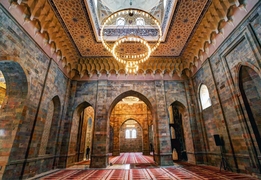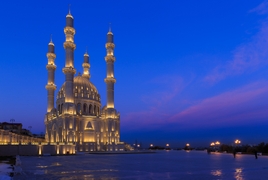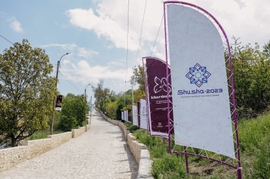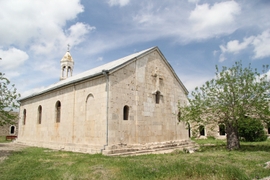Russia will be staging a comeback in the Eurovision Song Contest, to be held in Lisbon, Portugal next May, after its contestants were banned from participating in Eurovision 2017, held in Kiev, Ukraine.
“The 2018 Eurovision Song Contest will see 42 countries take to the stage in Lisbon,” read a statement issued Tuesday on the official website of the Eurovision Song Contest. “Russia is also returning to the contest after a year's absence.”
Russia’s Yuliya Samoylova, who was chosen as Russia’s contestant for the 2017 contest but was banned from entering Ukraine, will once more represent the Caspian region’s largest country.
Samoylova was prevented from participating in the contest in Kiev this past May, because she had traveled directly from Russia to the Crimean peninsula in 2015 for a performance. Kiev remains at odds with Moscow for its March 2014 annexation of the peninsula. Under Ukrainian law, Samoylova has been banned from entering the country for three years.
Russian representatives requested Samoylova be allowed to participate via satellite, or Russia be allowed to select another contestant. Both proposals were rebuffed by Kiev, despite even the European Broadcasting Union (EBU) protesting the ban.
Protests rocked Ukraine in early 2014, which were followed by a Russian takeover of Crimea, a referendum held in March that reported 97 percent of Crimea’s residents wanted the peninsula to be under Russian control, and Moscow ordering its annexation the same month.
Politicization of the 2017 Eurovision contest by Ukraine due to Russia’s actions in 2014 drew strong condemnation from the contest’s creators, as they said it “thoroughly undermines the integrity and non-political nature of the Eurovision song contest and its mission to bring all nations together in friendly competition,” according to a statement issued in April by the EBU.
The Eurovision Song Contest is the longest-running annual international television song competition. The 2018 contest, whose slogan is “All Abroad!”, marks Eurovision’s 63rd edition. It will include singers from 42 different countries. Lisbon is playing host, thanks to this year’s win by Portuguese singer Salvador Sobral. Sobral suffered from serious heart ailment in September and remains in critical condition.
The best showings to date in Eurovision by Caspian region countries were performances by Russia's singer Dima Bilan in 2008 and Azerbaijan's singers Eldar Gasimov and Nigar Jamal, or Ell & Nikki duet in 2011, when they won for performing the songs “Believe” and "Running Scared," respectively.
Alongside Sweden, Russia is a record-holder for the number of top-five finishes. It boasts four second place wins, two third, and one fifth place standing since it first entered the competition in 1994.


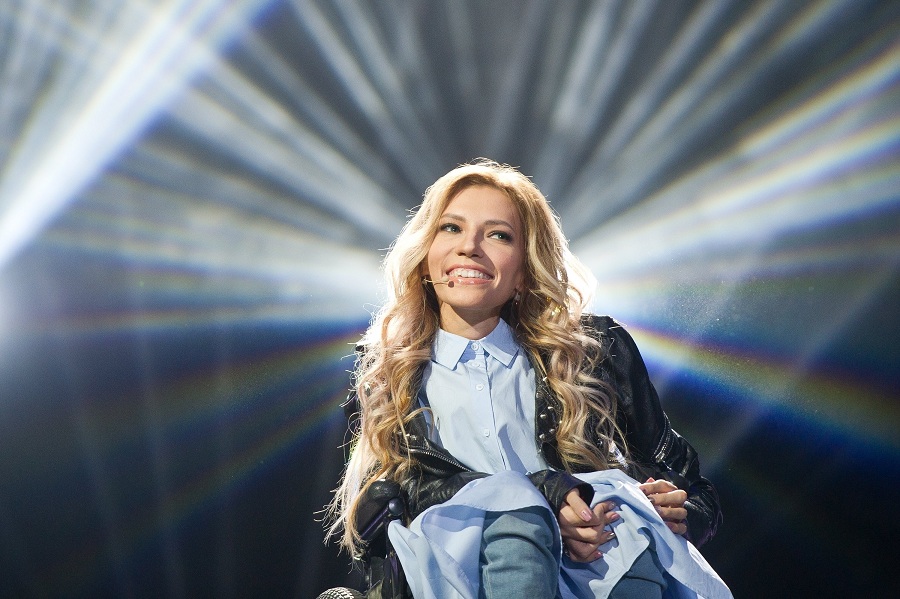




 The number of evacuees from flooded areas in Kazakhstan has reached 97,852 people, including about 32,856 children since March 27.
The number of evacuees from flooded areas in Kazakhstan has reached 97,852 people, including about 32,856 children since March 27.
 The Islamic holy month of fasting, Ramadan comes to an end this week with the celebration of a joyous festival called Eid (meaning “festival” in Ar...
The Islamic holy month of fasting, Ramadan comes to an end this week with the celebration of a joyous festival called Eid (meaning “festival” in Ar...
 Iran's senior military leaders described the drone and missile attack on Israel on April 14 night as “successful".
Iran's senior military leaders described the drone and missile attack on Israel on April 14 night as “successful".
 Iranian President Ebrahim Raisi warned Israel that it would face a "real and extensive" response if it makes any "mistake" following Tehran’s missi...
Iranian President Ebrahim Raisi warned Israel that it would face a "real and extensive" response if it makes any "mistake" following Tehran’s missi...
